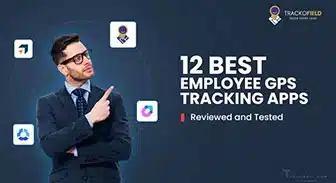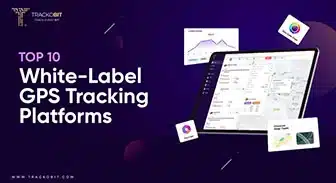-
TrackoBit
Manage commercial vehicles with the new-age Fleet Management Software
TrackoBit -
TrackoField
Streamline your scattered workforce with Field Force Management Software
TrackoField -
Features Resources
-
Blog
Carefully curated articles to update you on industrial trends. -
White Paper
Insightful papers and analysis on essential subject matters. -
Glossary
Explore an alphabetical list of relevant industry terms. -
What’s New
Get TrackoBit & TrackoField monthly updates here. -
Case Study
Explore the cases we solved with our diverse solutions. -
Comparisons
Compare platforms, features, and pricing to find your best fit.
-
About Us
Get to know TrackoBit: our team, ethos, values, and vision. -
Careers
Join the most dynamic cult of coders, creatives and changemakers. -
Tech Support
Learn about our technical support team and services in detail. -
Events
Check out the exhibitions where we left our marks and conquered. -
Contact Us
Connect with us and let us know how we can be of service.
How to Choose The Best Last-Mile Delivery Software?
- Author:Tithi Agarwal
- Read Time:7 min
- Published:
- Last Update: May 30, 2025
Table of Contents
Toggle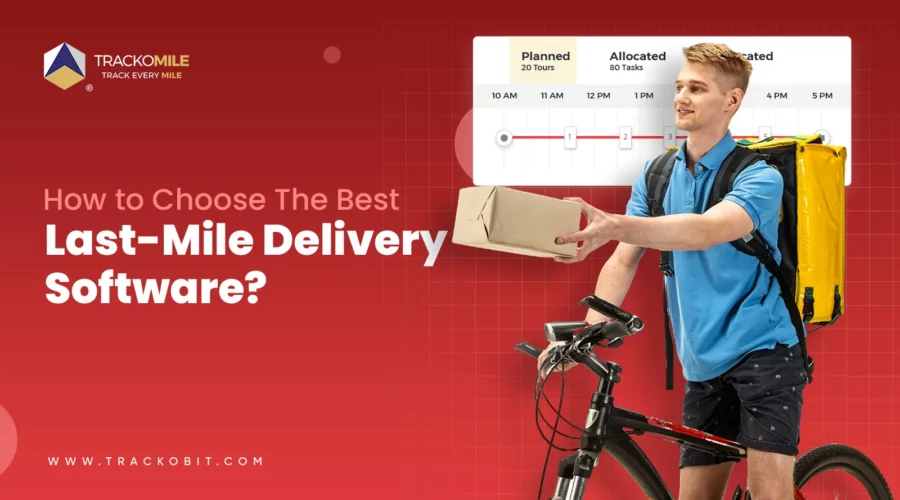
Choosing the best last-mile delivery software will help logistics companies to achieve cost optimization, on-time deliveries, and customer satisfaction.
Table of Contents
ToggleYour order 📦is out for delivery!
The rise in automation through last mile delivery software is benefiting consumers. They know that goods can be delivered to them within a few hours or days. However, this has raised the bar for fulfilling consumers’ expectations. Thus adding to the burden.
Through last-mile delivery software, logistics companies can streamline their operations. This way, they can curb expenses. Additionally, it brings visibility, which is essential for optimizing resource allocation and utilization.
But what’s even more important is that you invest in the right last-mile delivery software. Keep reading the blog to know the must-have features of last-mile delivery software.
Read Blog – Everything About Last-Mile Delivery
What are the Reasons to Invest in Last-Mile Delivery Software?
Why are logistics companies searching for the best last-mile delivery system? Is it because it allows companies to deliver customers a seamless experience? Customer satisfaction is the primary reason retailers select logistics companies. These companies are chosen to optimize the transit process. They also help achieve free and fast delivery.
Another reason for the last-mile delivery software is that it reduces operating costs. Last-mile delivery is the last leg of the supply chain but is also the most expensive. It accounts for more than half of the entire supply chain operating cost. The reasons are –
- Failed deliveries,
- Lack of optimized routes,
- Rising fuel costs,
- Idling, and downtime.
These factors contribute to making this leg the most expensive.
Cost is not the only problem that the last mile is riddled with. Last-mile managers also suffer from a lack of visibility required for smooth deliveries. Obsolete technology can hinder companies from providing consumers with an exceptional delivery experience. Manual methods of working and assigning deliveries also contribute to this challenge.
Consumers today want convenience and price discounts from e-commerce platforms. D2C businesses must strengthen their capabilities, or they might lose against the competition. Brands are adopting technology to reduce the gap between warehouses and consumers. They are looking to gain convince, flexibility, and sustainability through the software.
These problems drive logistics fleet tracking companies to adopt a last-mile delivery platform.
Essential Features of Last-Mile Software
A last-mile delivery system can solve many challenges, making it worth the investment. But the question arises- what to select when selecting.
But there is no need to worry; we are here to help you choose the last-mile software more easily. We do this by listing a series of features and solutions that are a must in the software of your choice. Scroll down to get a better understanding of the features. 👇
1. Dispatch Management
How wonderful it would be that the tasks and deliveries get auto-assigned. Well, the dispatch management software does so through automation. It pairs orders with riders. It does so after considering many factors such as:
- Vehicle payload capacity
- Rider schedule
- Order nature
- Customer requests
The feature allows managers to utilize the available resources and workforce optimally.
2. Route Optimization
Route optimization software ensures your riders deliver the parcel on time. The solution works towards minimize delivery instances and charges/costs. It does so by suggesting the shortest route.
This feature considers 120+ factors such as:
- Type of vehicle
- Distance between warehouse and consumer
- Traffic conditions
- Availability of riders
- Weather conditions
Balancing these factors automatically suggests an effective and shortest route. Furthermore, managers have the option to customize and geofence paths and stops.
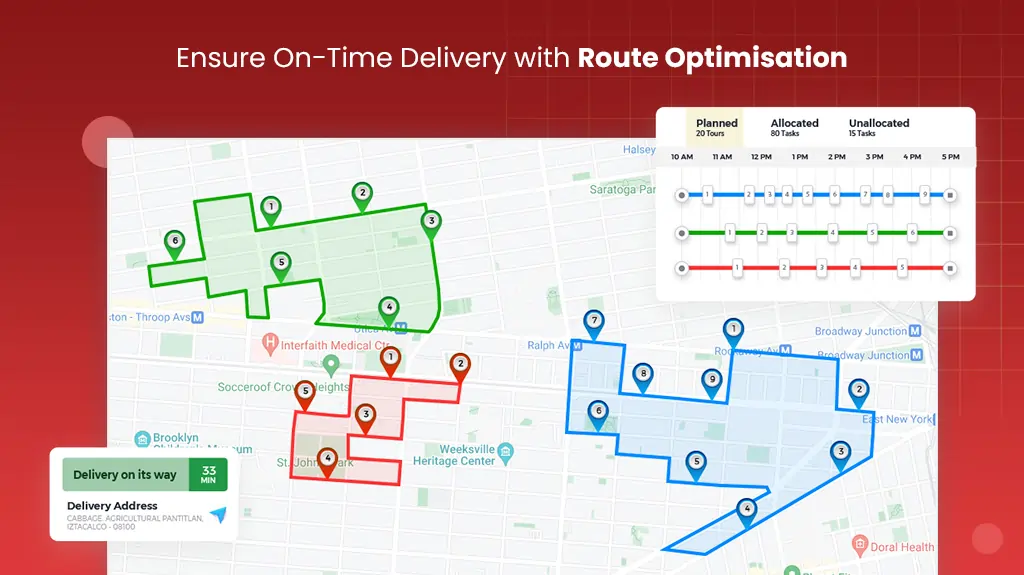
TrackoMile’s route optimisation solution ensures that the orders are delivered on-time
3. Real-Time Monitoring
It is vital for managers to get real-time tracking and visibility of riders’ whereabouts. Only the software’s automated monitoring feature lets you track them without delays.
This means managers know where their riders. They receive instant alerts if they deviate from the assigned routes. The software’s application lets managers track the entire delivery team in real-time. It highlights their progress on a route map.
4. ETAs and POD
Providing accurate ETAs is essential for customer satisfaction. Last-mile software can help achieve this. Nowadays, even customers demand real-time updates on their orders, and why not! Estimated-time-of-arrival update keeps the customers informed at every step of the delivery process.
Another essential feature of last-mile software is POD. It is crucial as it signifies the successful delivery of orders and the end of the last-mile process. The software offers electronic POD through
- OTP,
- e-signature,
- QR code scan,
- and automatic to make it easy for riders.
5. Data and Metrics
Managers can record, analyze, and measure the workforce’s performance through automated analytical reports. For example, they get consolidated reports on every alert sent and times the riders deviates from the path. You also get reports on travel times and ETAs and visibility on deliveries.
6. Rider Roster Management
To prevent you from wasting time and effort on manually planning out the delivery schedules of the riders, the last-mile software offers rider roster management. Through it, you can automate scheduling morning and night shifts according to the workforce and vehicles available.
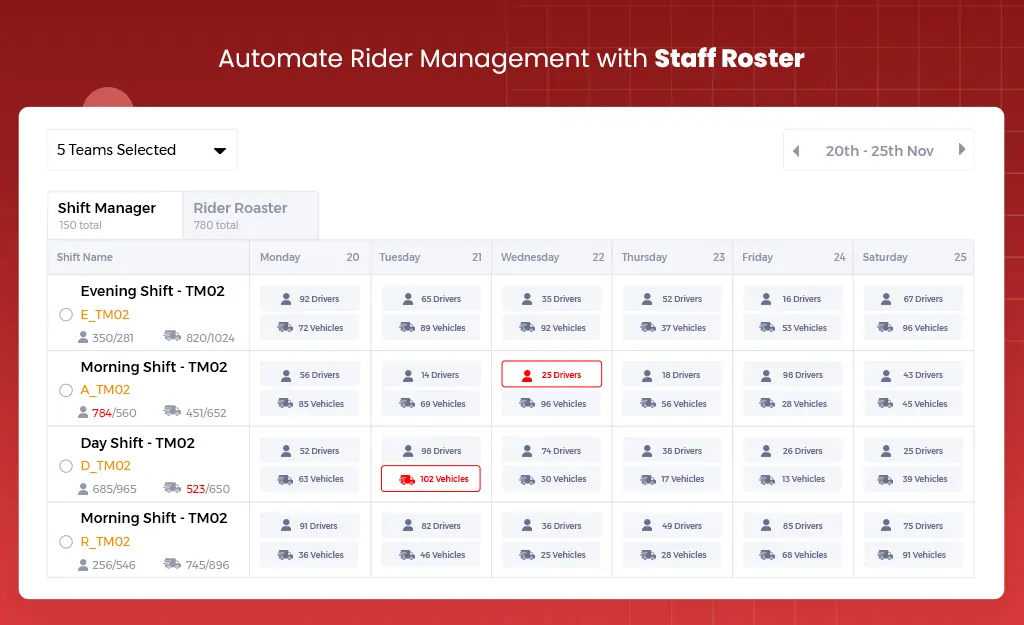
TrackoMile optimises rider and delivery schedule with rider roster
7. Customer Feedback
For logistic companies to improve their services, they require two things: last-mile software and second to hear the feedback of the customers. And riders are the perfect way to collect customer feedback and suggestions. They can do it through the happiness code. In it, the customers receive an SMS to share a happiness code.
There is a separate app for riders. In the rider app, the riders get remote access to data and gain information like
- The address of the receiver,
- Route to undertake,
- Stops to make, etc.
- Mark Attendance
It also has an inbuilt chat box through which they can connect with their in-office staff.
What Services To Expect From Your Last-Mile Delivery Software Provider?
Before investing in last-mile software, you need to be well-versed with the software provider. This is because they are the ones who you will be dealing with when investing, tweaking the software, and calling for solving glitches.
1. Elastic Customization
There is no limit to the amount of customization we offer. Right from adding required alerts and notifications to altering features, we do it all for our customers. This is because TrackoMile aims to help logistics businesses to scale by attaining customer satisfaction.
2. 24×7 Technical Support
Choose a provider that offers 24×7 technical support to all clients. Even at the slightest inconvenience, they can connect with team of expert technicians on WhatsApp.
3. Cross Delivery Methods
The software is flexible and adaptive in nature. This means businesses dealing with last-mile, quick delivery, or hyperlocal deliveries can adapt the platform to ensure on-time delivery to customers.
Your Order has Been Delivered Successfully!👍
Successful and on-time deliveries are not only expected by customers but also by logistics companies. Because failed deliveries only mean disappointed customers and increased costs due to reattempt delivery. So to make your delivery execution foolproof, investing in last-mile delivery software is best.
TrackoMile is the best last-mile delivery software that offers solutions to automate your operations with great efficiency.
Frequently Asked Questions
-
How much does last-mile delivery software cost?
Costs vary depending on the features, number of users, and deployment model (cloud-based or on-premises). Look for subscription-based pricing or custom quotes.
-
Is the software mobile-friendly?
Most last-mile solutions provide mobile apps for drivers to access - - Delivery details, - Routes, -And real-time updates.
Tithi Agarwal is an established content marketing specialist with years of experience in Telematics and the SaaS domain. With a strong background in literature and industrial expertise in technical wr... Read More
Related Blogs
-
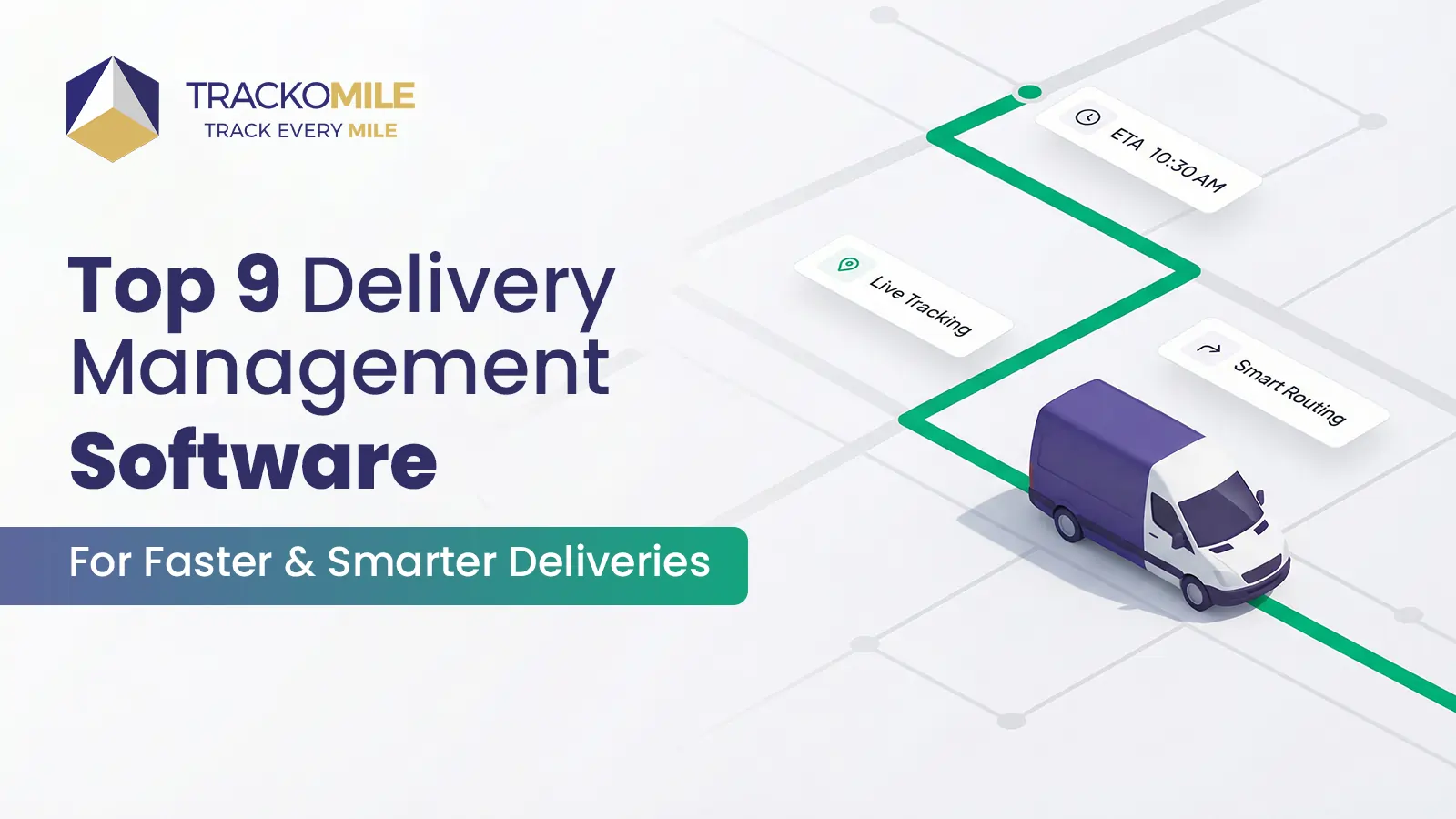
Top 9 Delivery Management Software in 2026
Tithi Agarwal February 2, 2026By choosing the best delivery management software, companies can benefit from features like route optimization, dispatch management, and more. This…
-
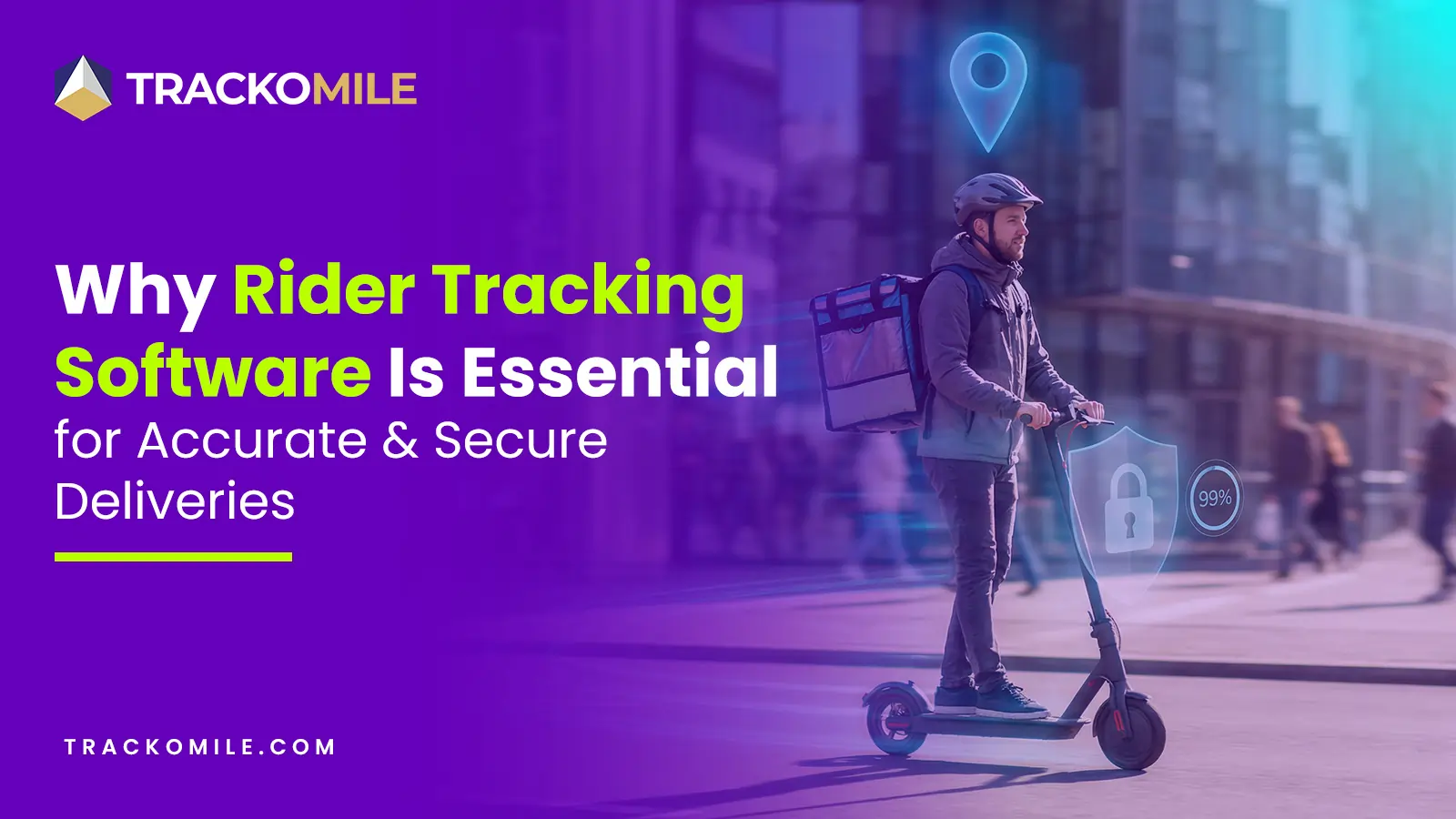
How Rider Tracking Software Improves Delivery Accuracy and Reduces Fraud
Tithi Agarwal December 8, 2025Rider tracking software improves delivery accuracy with real-time GPS visibility and automated ePOD. It also enables route optimisation and fraud…
-
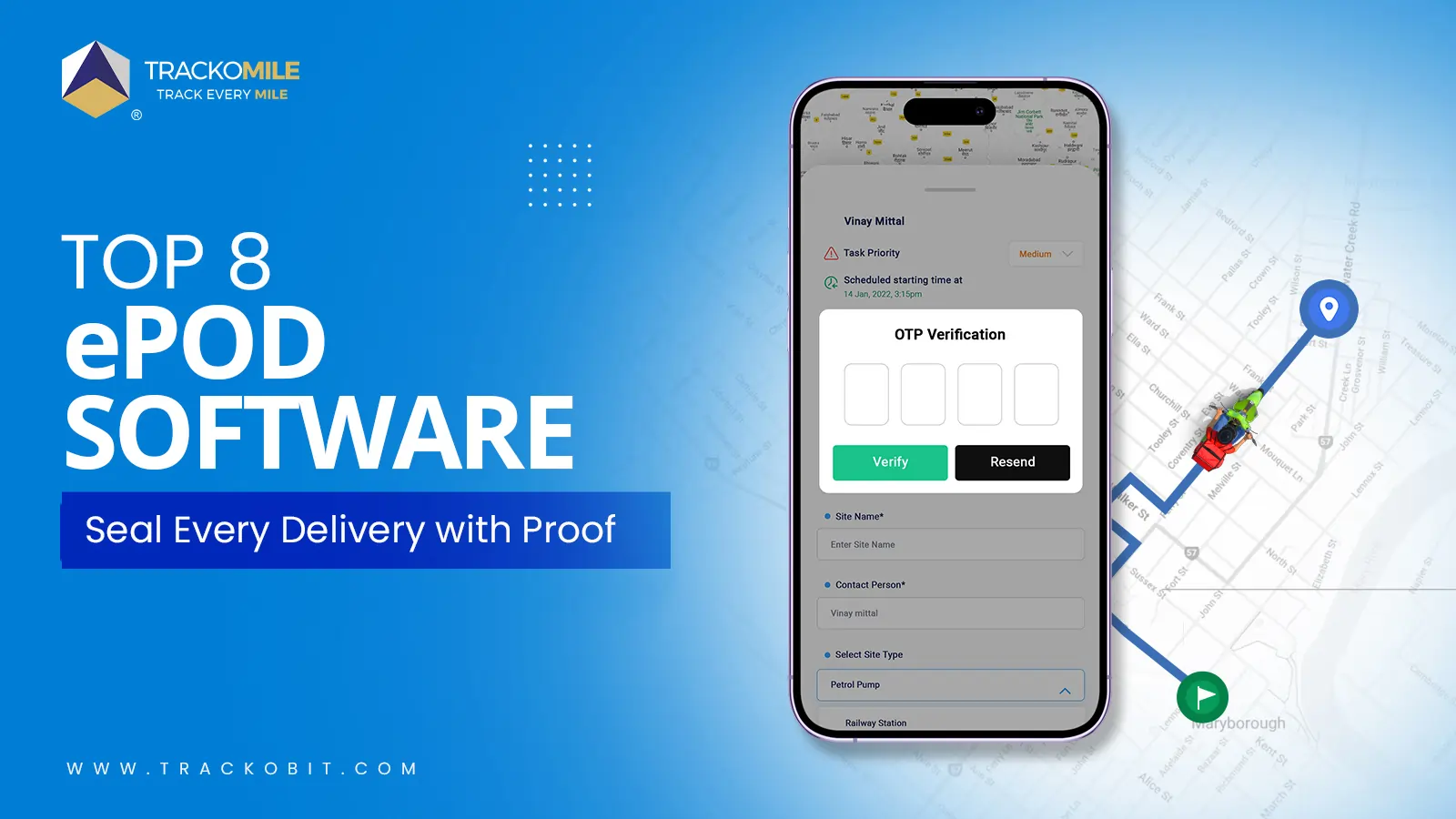
Top Electronic Proof of Delivery (ePOD) Software in 2026
Tithi Agarwal September 25, 2025Electronic proof of delivery has become the backbone of modern logistics. Explore the top 8 ePOD software in 2026 and…
-
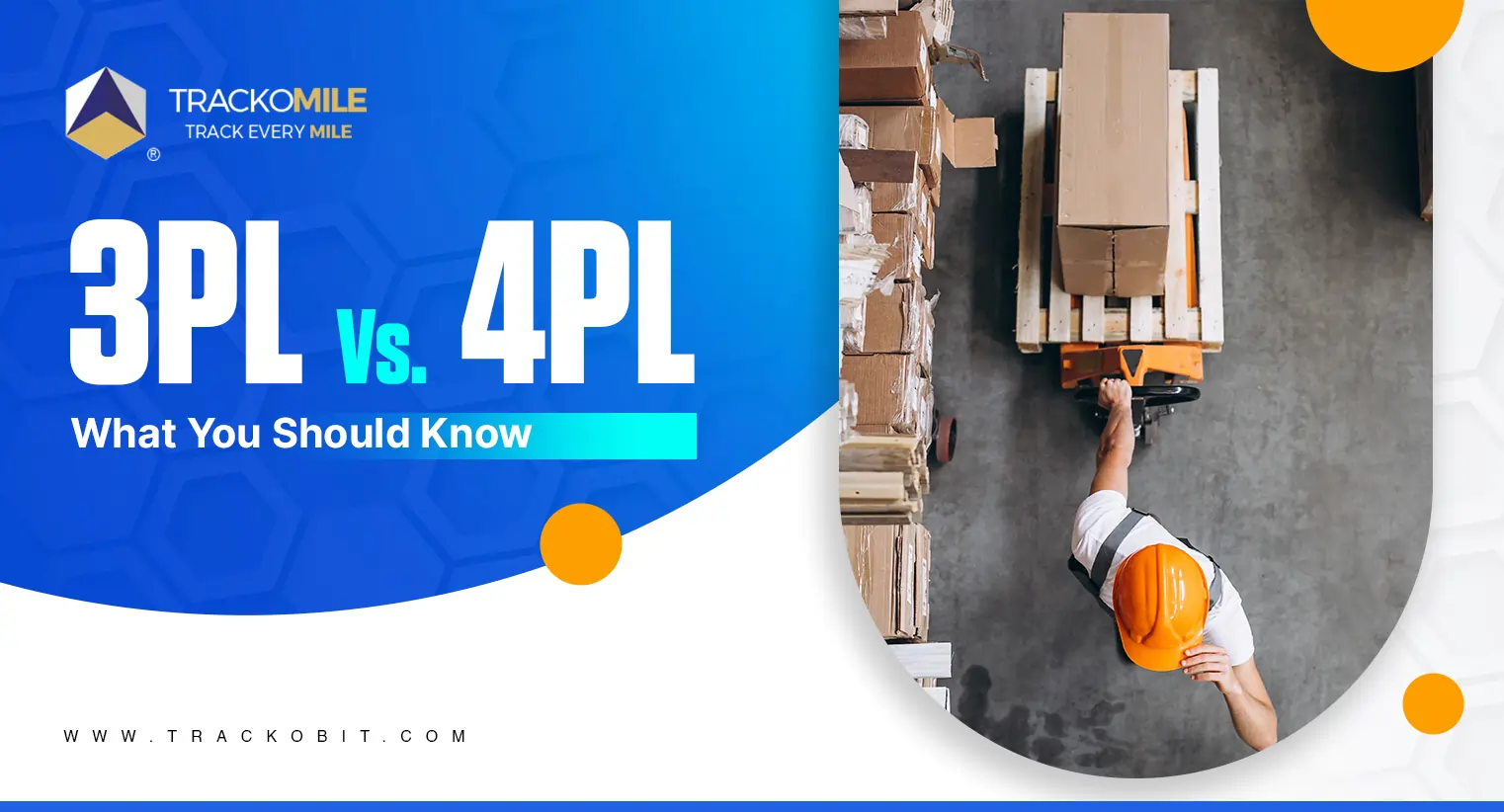
3PL vs. 4PL: Which is Best for Your Business?
Tithi Agarwal September 25, 2024Confused about choosing between 3PL and 4PL for your retail supply chain? Read this blog to find out which is…

Subscribe for weekly tips to supercharge your last-mile delivery.
Your inbox awaits a welcome email. Stay tuned for the latest blog updates & expert insights.
"While you're here, dive into some more reads or grab quick bites from our social platforms!"Stay Updated on tech, telematics and mobility. Don't miss out on the latest in the industry.
We use cookies to enhance and personalize your browsing experience. By continuing to use our website, you agree to our Privacy Policy.


































